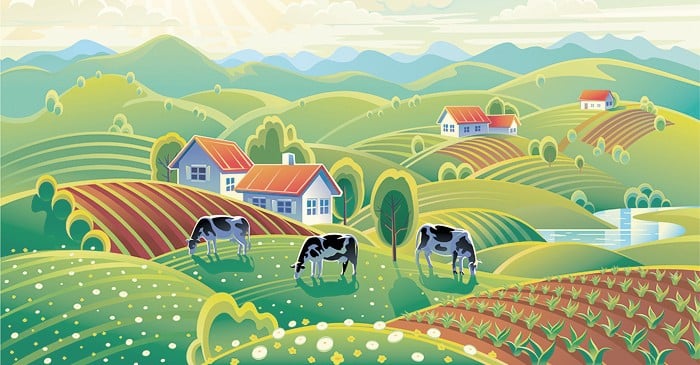If you’re tired of tending your farm, you’re in luck: there are plenty of people in town willing to pay to break their own backs. It’s true that they are not very skilled in agricultural matters, but the same thing happens with fatigue, as with Dave Barry’s cholesterol: “It is a scientific fact that your body will not absorb cholesterol if you take it from someone else’s plate.” You can sit in a chair giving orders and lots of enthusiastic people will obey without accusing you of slavery or organizing demonstrations by orcs on your doorstep. It’s wonderful.
The Little House
Most agritourism enthusiasts are looking for something that is “authentic” (that’s what they call it), which is to say, something disgusting, precarious, and painful — much more than any farm is these days. So get rid of all electric appliances and stick to tools used back in the Bronze Age. They’ll love that. Make them think you know exactly how the hell to use those things.
Make Sparks
For reasons that country folk will never understand, city types are crazy about anything that makes sparks. If you want your agritourism hotel to become a true tourist trap, dedicate at least one room to a candlelit workshop where you showcase some traditional sparkling activity. For example, iron forging is all the rage right now. I’m guessing the passion today’s youth has for tattoos has something to do with it.
Anyway, to make the sparkling as effective as possible, it is important that you invent a story for the workshop: for example, you can tell them that for 20 generations your family has been forging iron to make knives. It goes without saying that you should hide all the normal knives and put pieces forged by you all over the house: you can get them in any store of rural objects, no need to burn yourself.
Be careful, though, with your clothes during demonstrations. I have been told that the red-hot iron stain does not come out.
Price
Look up the cost of a night in a luxury hotel and multiply by four your offer. If you don’t make them pay a million dollars, they’ll think you’re a crappy rural hotel, which apparently is the one with air conditioning and a heated pool. You must offer a wild experience that will mark your clients for life. Turn off the heat. Don’t feed them. Force them to eat fish alive and direct from a basin of murky water. And it doesn’t hurt to break several windows, turn off the hot water, and let wolves loose in the halls of the house. Take out insurance in case a wolf eats Little Red Riding Hood and spoils the story. City tourists go wild when there are casualties among their ranks.
Just Another Guest
Agritourism fans love it when you join them on their vacations. It’s not the same if you don’t sit at their table, dunk bread in their dishes, and in the case of couples, sleep between the two of them, telling them stories about life in the countryside every night.
The Rooster
If you don’t have a rooster that crows at dawn, download it and play it every morning over the loudspeakers. A rural house without a rooster is a luxury apartment in Manhattan, and that is everything they despise. If the rooster smells bad and has malaria, so much the better.
Animals
If you want to target your agritourism business to upper-middle-class families, ideally you should include animals. Planting lettuce can be fun, but it is difficult for someone to fall in love with a lettuce to the point that they feel they have to come back next summer to take care of it. Instead, for reasons again unattainable to ordinary mortals, city people who spend their summers in rural destinations think that the little cows, sheep, and pigs — which they often name and speak of with great affection — will need their love in a year’s time. What’s more, they believe they will remember them. Take advantage of this.
As for which critters you should have, get a couple of dogs, a lot of tiny sheep, and keep the geese, and generally any of those animals that enjoy pecking the heads of the customers’ children, to a minimum. A child crying disconsolately on Facebook is equivalent to cancelling reservations from several families.
The Vegetable Patch
Finally, as part of my intense documentation work for this saga of summer articles, I have spent a month tending pumpkins, cucumbers, tomatoes, and various vegetables. The result is overwhelming. A couple of days ago, I had to be rescued by my neighbor when I got myself trapped behind a cucumber the size of a nuclear power plant.
I, before giving myself over to my cucumbers, will retire to devote myself to books. However, I think it is very likely that all of those people who are eager to get off the asphalt and learn country activities will enjoy watching the melons grow in the orchard and uploading harvest stories to Instagram.
On that note, one last piece of advice, in light of my own experience. A few weeks ago, I almost had my Instagram account canceled for uploading an image of the July yield under the innocent title “Allow me to show you my cucumber.”
Translated by Joel Dalmau.
























